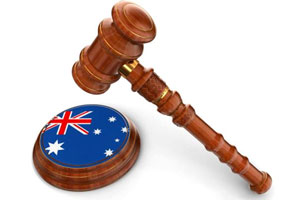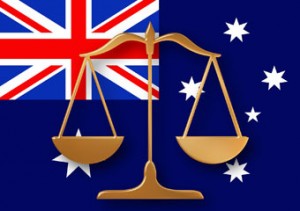As eCigarettes have become increasingly popular with people, both for recreational use and as an excellent way to help with quitting smoking, it is important to be aware of the law governing the use and importation of such products. Where e-cigarettes are concerned, Australian laws are very complicated and there are differences between different states and jurisdicstions. Because these laws can be cumbersome, Aussie Vape has put together a quick reference guide for Australian law. Where an inconsistency exists in the law between states, Commonwealth law takes precedent over all others and the majority of states and territories adhere to SUSMP, the Commonwealth Standard for the Uniform Scheduling of Medicines and Poisons. New South Wales is an exception to this, and the state has drawn up a New South Wales Poisons List, which mirrors the SUSMP where nicotine is concerned.
The SUSMP lists nicotine as a prescription-only medicine when it is used for human consumption, but not in cases where it is used in products such as nicotine gum, patches and oral sprays intended to help those looking to quit smoking. Nicotine is classified as a poison, except in formulations for people’s therapeutic use or tobacco which is prepared and packed for the purpose of smoking. Therefore, nicotine in e-cigarettes falls into this category (a poison) unless it is treated as therapeutically beneficial. There are no import restrictions on nicotine, however, people might be committing an offence under territory and state laws when they receive or use nicotine that has been imported.
With a poison such as nicotine (and poisons similarly listed under the same classification) it is an offence in all Australian states and territories to produce, sell or supply nicotine as a poison under this classification unless you have specific sanction or a license to do so. In Queensland, there have been cases where people have been charged with illegally supplying liquid nicotine intended for use in e-cigarettes in the state.
Australia’s Federal Department of Health has recently advised that nicotine can be important in order to be used as a non-approved therapeutic good, for instance an ide to help people give up smoking, however those importing need to be in possession of a prescription from a medical practitioner registered in Australia. In addition, the importer is only permitted to import a maximum of 3 months supply at a time. As well as this, the complete amount imported over 12 months is not allowed to surpass a 15 months’ supply of the product when used at the supplier’s maximum recommended dose.
E-cigarettes that do not contain nicotine are not presently legalized as a therapeutic good as described by the Commonwealth Therapeutic Goods Act and, as yet, no such products have sanctioned by the Therapeutic Goods Administration (TGA) as a medical device.
Some states, including Queensland and New South Wales, do not allow the sale of any product that resemble a tobacco product. Vendors should be very careful regarding the word “resemble”, as the definition can be very broad.
Queensland law was changed in 2014 to include “personal vaporizers” under what is defined as a tobacco product. Therefore, the same restrictions exist on selling and using nicotine-free e-cigarettes and personal vapourizers as those on tobacco cigarettes lit and smoked in the traditional way.
It is not illegal in any state in Australia to possess a non-nicotine e-cigarette. IT should be remembered though that Queensland’s smoking ban includes the inhalation from an e-cigarette, and there has also been documented the case of a man in New South Wales who was issued with a fine for “smoking” an e-cigarette while on a train platform. Such instances show that there still exists a current of uncertainty as to how laws are applied when there is no definite provision in the law for e-cigarettes.
There are a few points to remember:
- It is not legal to sell e-cigarettes if they contain nicotine
- If you use e-cigarettes that contain nicotine, you must be in possession of a prescription or other authorization to so do
- Queensland law states that e-cigarettes can legally be sold under the same conditions as products that contain tobacco. However, it may be illegal in other states to sell e-cigarettes even if they do not contain nicotine.
- It is not likely in most states (with the exception of Queensland) that e-cigarettes are governed by laws that regulate smoke-free areas. It should be remembered, though, that individual premises are allowed to decide their own policy on whether or not e-cigarettes may be used on their premises.


